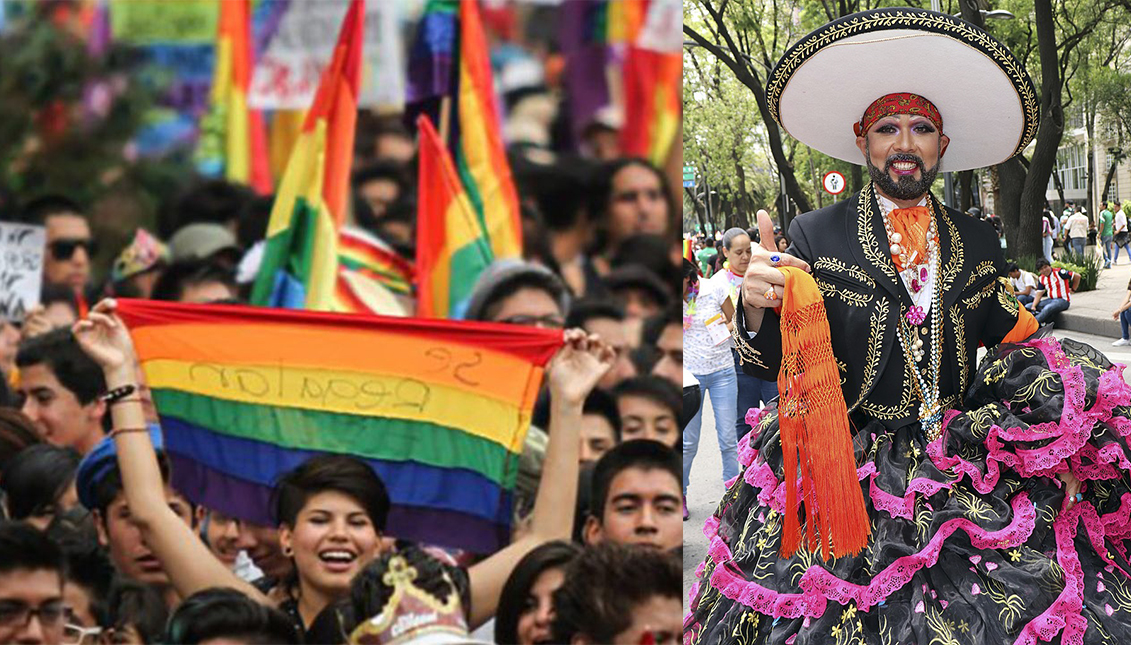
Mexico City bans treatments to "cure homosexuality"
Psychologists, doctors and religious groups that administer conversion therapies to gays and lesbians will face sentences of up to five years in prison.
"After hours on the road, they stopped in the middle of nowhere and lined us up with their hands on the van as if we were criminals (...) putitos, they told us, here we will cure you." This chilling testimony gathered by the Yaaj organization was heard loud and clear in Mexico's Congress. It was not an isolated story, there were many more that told of the physical and psychological violence suffered by people who had voluntarily or involuntarily undergone conversion therapy where they were supposed to "cure" their sexual orientation with insults, humiliation, isolation and even hormone and electric-shock therapy.
Now these UN-approved treatments, which are under the umbrella of Efforts to Correct Sexual Orientation and Gender Identity (Ecosig), will no longer take place in Mexico City. The local government banned them on July 24 in a historic vote with 49 votes in favor, nine against and five abstentions.
"There is nothing to cure, homosexuality is not an illness, we are not sick," said LGBTQ deputy Morena and author of the proposal "Temístocles Villanueva," welcoming the fact that these therapies without any scientific basis and often practiced by religious groups and dubious doctors and psychologists will be punished with up to five years in prison.
The amendment was promoted by Morena, the government party, which has a majority in parliament, in alliance with the Workers' Party and is a major step in the defense of the free development of personality for which they have had to reform the Criminal Code.
Thus, not only will there be prison sentences for homophobic "matasanos," but between 50 and 100 hours of community work depending on the crime, which is aggravated if these methods are applied to juveniles.
RELATED CONTENT
"Enough violent and degrading therapies," added Villanueva, who was quick to clarify that this law does not seek to penalize people who voluntarily seek these types of therapies, but rather those who offer them.
Conservative groups opposed to the change said they felt criminalized because of their convictions.
"It could become a gag for the exercise of freedom of expression and worship of religious doctrines," protested the ultraconservative Encuentro Social Party in a letter published in the hours before the plenary session. Although the LGBTQ activists pointed out that these practices are not only fraudulent, but are based on hate speech pathologizing other sexual orientations.
According to Siobhan Guerrero, a trans activist who raised the diversity flag with other members of non-normative minorities outside Congress to celebrate this victory, the Ecosigs were promoted first by the Catholic Church and later by evangelical groups, which imported their methods mostly from the United States.
"Historically they have had little presence in Mexico City, although homophobic, transphobic and misogynist discourses are becoming more common," Guerrero said.
In recent times, the Latin American country is experiencing a wave of ultra-conservatism that is penetrating deeply into the local governments of several states, with initiatives such as the parental pin, which gives parents the power to veto the content on sex education that their children receive in schools, or the refusal in Baja California of equal marriage, which was voted on a few weeks ago — it was two votes away from approval — and brought together last Saturday, July 25, hundreds of members of the LGBTQ community who demonstrated peacefully in Tijuana.











LEAVE A COMMENT:
Join the discussion! Leave a comment.